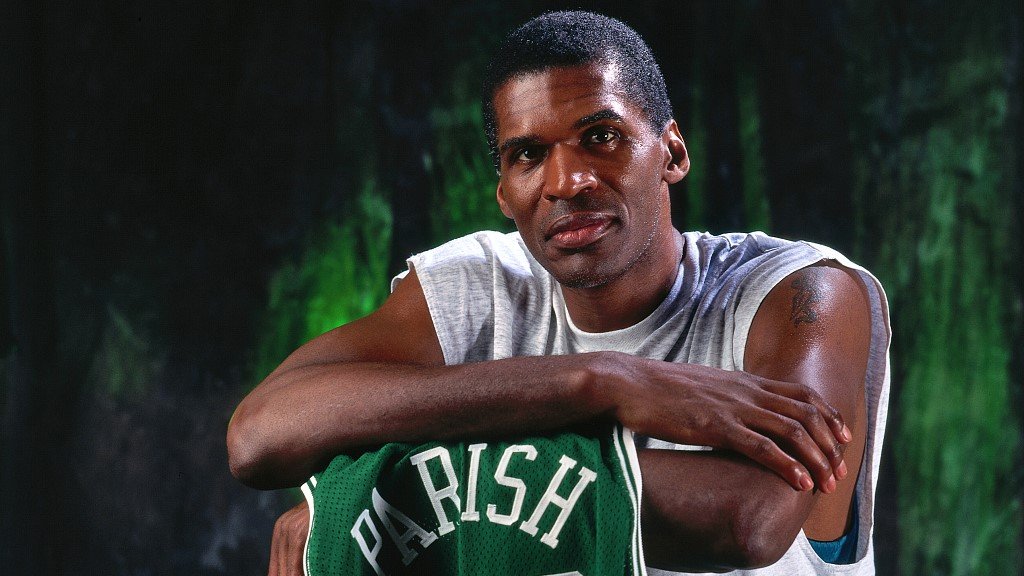
Robert Parish poses for portrait as one of the 50 Greatest Players in NBA History in New York City, New York, 1996. /VCG
Robert Parish poses for portrait as one of the 50 Greatest Players in NBA History in New York City, New York, 1996. /VCG
Endurance is a rare thing in the NBA – the average career length in his league is about 4.5 years. Sure there were exceptions like Kareem Abdul-Jabbar who retired at 42, or Dikembe Mutombo who kept denying youngblood's shots in the paint for 18 years.
And then there's Robert Parish, "The Chief" who played 1,611 games (the most in NBA history) in his career and retired when he was 43 years old (the oldest in NBA history).
When the Golden State Warriors selected Parish with the eighth pick in the 1976 NBA Draft, they had high expectations on him. The 2.16-meter giant finished his senior year in Centenary College averaging 25 points and 18 rebounds. Warriors fans believed that Parish could help Rick Barry achieve something.
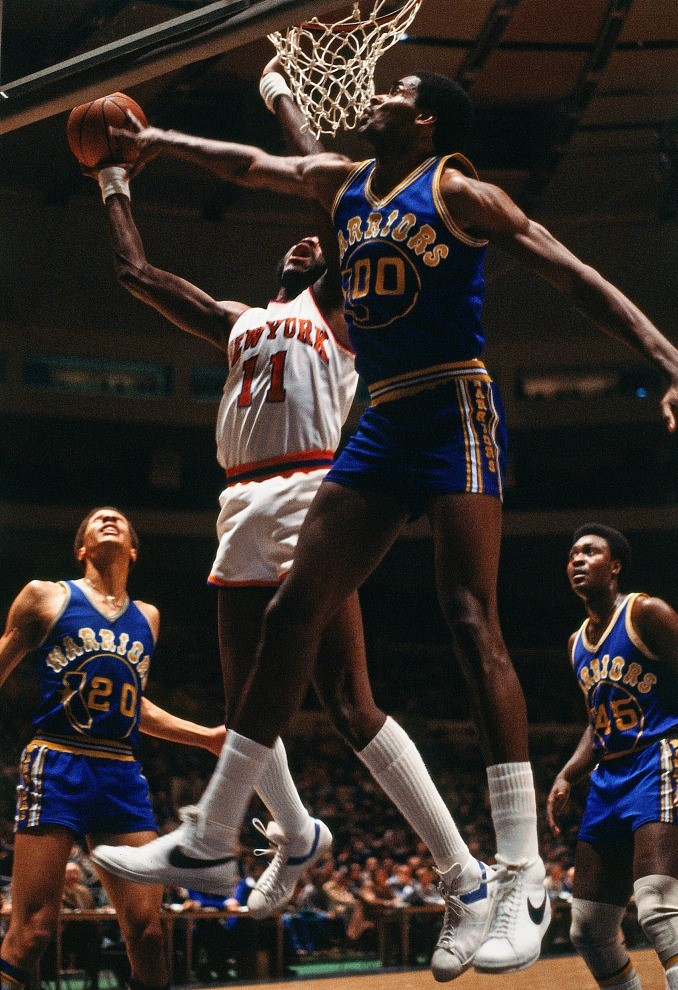
Robert Parish #00 of the Golden State Warriors blocks a shot by t Bob McAdoo #11 of the New York Knicks at the Madison Square Garden in New York City, New York, 1975. /VCG
Robert Parish #00 of the Golden State Warriors blocks a shot by t Bob McAdoo #11 of the New York Knicks at the Madison Square Garden in New York City, New York, 1975. /VCG
However, Parish was a disappointment in his rookie season. He only played 18 minutes per game and got 9.1 points, 7.1 rebounds while committing three fouls. Fortunately, he kept getting better every season and was able to put down 17+12 and 17+11 in the two seasons between 1978 and 1980.
Parish' performance drew attention from Boston Celtics' general manager Red Auerbach who then made a trade with the Warriors: the Celtics sent the first and the 13th draft picks (1980) to the Warriors in exchange for Parish and the third pick, which then became Kevin McHale, the only one in NBA history who could match Hakeem Olajuwon in low post moves.
Shortly speaking, Parish and McHale helped Larry Bird win another three NBA championships in the 1980s. The Warriors selected Joe Barry Carroll, a guy who averaged 17.7 points and 7.7 rebounds per game in his 11-season career. If you don't know who he is, there's no need to feel bad.
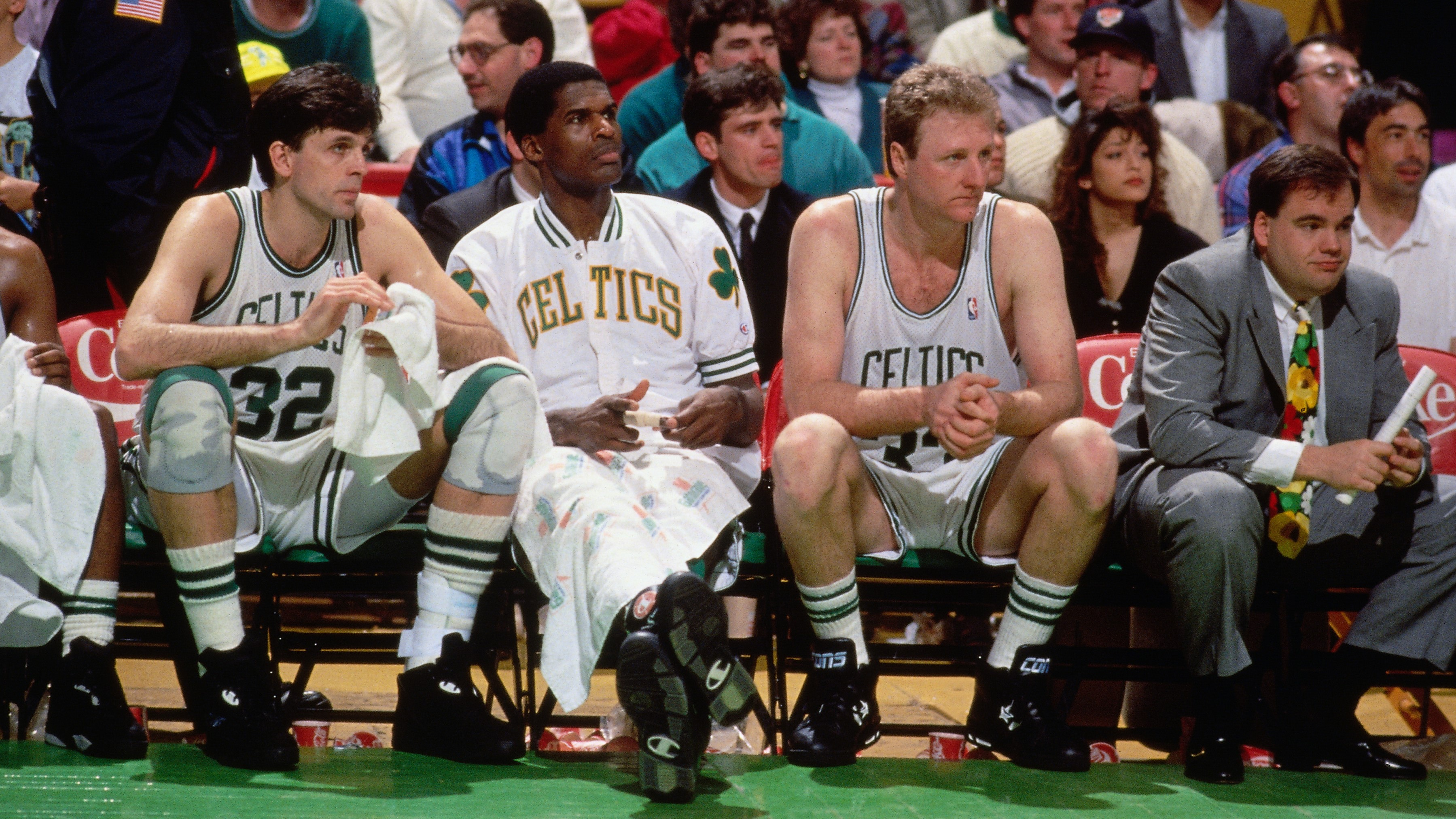
Kevin McHale (L), Robert Parish (C) and Larry Bird (R) sits along the court in a game at the Boston Garden in Boston, Massachusetts, 1986. /VCG
Kevin McHale (L), Robert Parish (C) and Larry Bird (R) sits along the court in a game at the Boston Garden in Boston, Massachusetts, 1986. /VCG
Boston gave Parish the stage he fit. Having dropped 18.9 points, 9.5 rebounds and 2.6 blocks per game, he was supporting Bird as one of the best second fiddles of the league. He scored 15 points per game in the 1981 Finals – the number might not seem pretty but it was already the fourth-highest in that series. In Game 3, Parish had 11 points in 13 minutes before he clashed with Moses Malone and was ruled out for the game. Parish was given five stitches and came back in Game 4, scoring 18 points, 12 rebounds and six blocks.
The Celtics did not need him to get 25 points, 15 rebounds, they needed him to run, rebound and block. Parish did all of that and he loved them. They might make him look like a blue-collar big man, but the truth is, Parish was named seven straight All-Star from 1981 to 1987.
In fact, Parish could also be a hero, as long as the team needed him to be. The Celtics met the Los Angeles Lakers again in the 1984 NBA Finals and trailed 2-1 after the first three games. Game 4 grew bloody after McHale "clotheslined" Kurt Rambis to the floor.
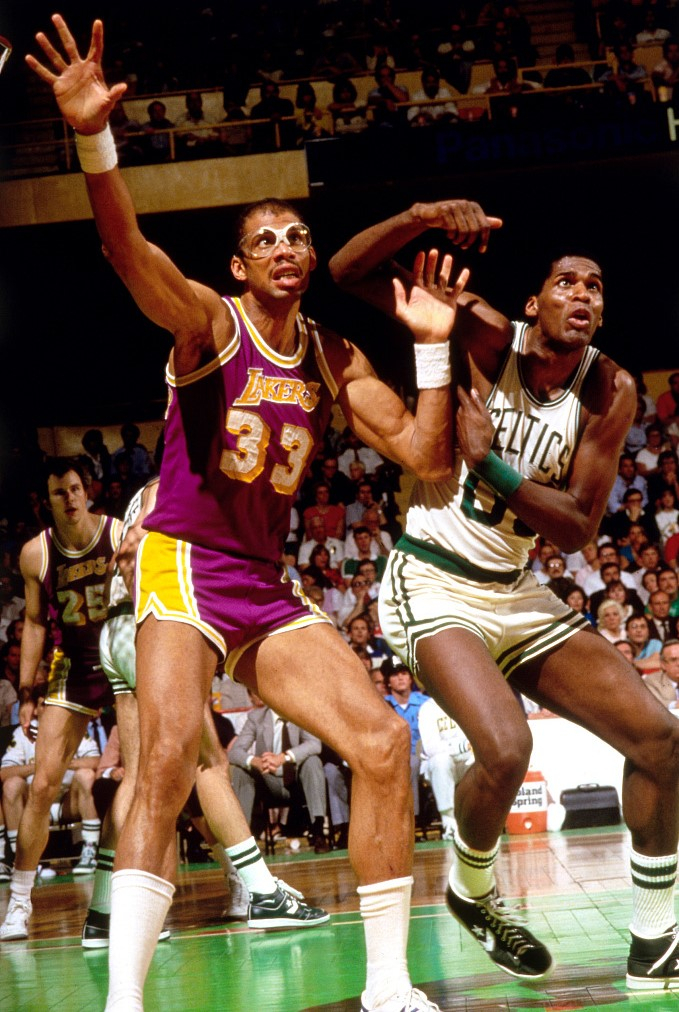
Kareem Abdul-Jabbar #33 of the Los Angeles Lakers tussles with Robert Parish of the Boston Celtics in the game at the Boston Garden, 1984. /VCG
Kareem Abdul-Jabbar #33 of the Los Angeles Lakers tussles with Robert Parish of the Boston Celtics in the game at the Boston Garden, 1984. /VCG
In the last minute, Parish took the sixth foul from Abdul-Jabbar, removing the Sky Hook from the game and made free throws to narrow Boston's trail to two points (113-111). Then Parish stole the ball from Magic Johnson, giving Bird the opportunity to earn and make free throws to tie the game. Thanks to the key performance by Parish in both offense and defense, Boston managed to drag the game into overtime and beat the Lakers in Game 4 before winning the final championship.
In the seven-game series, Parish averaged 15+11 and grabbed a total 30 offensive rebounds – by contrast, Abdul-Jabbar only got 29 defensive ones.
McHale began to rise in the second half of the 1980s and he helped the Celtics win their third title in 1986. Meanwhile, Parish saw his stats continue to drop. In the 1987-88 season, he got 14.3 points, 8.5 rebounds, missing the All-Star Game for the first time in eight years.
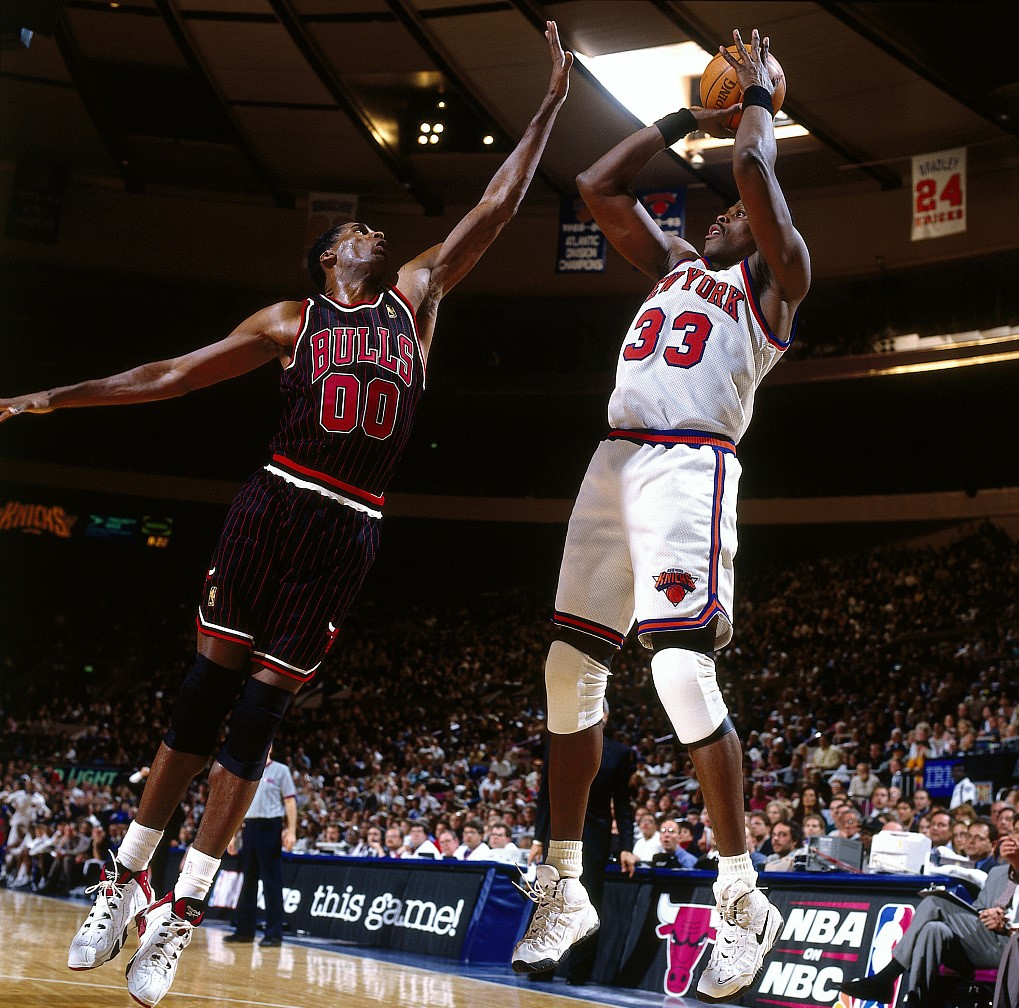
Robert Parish #00 of the Chicago Bulls tries to block a shot by Patrick Ewing #33 of the New York Knicks at the Madison Square Garden, 1997. /VCG
Robert Parish #00 of the Chicago Bulls tries to block a shot by Patrick Ewing #33 of the New York Knicks at the Madison Square Garden, 1997. /VCG
For a 34-year-old center, it was nothing surprising, but Parish himself turned out to be a big surprise. When Bird had to deal with his back injury and only played six games in the 1988-89 season, Parish seemed rejuvenated by dropping 18.6 points, 12.5 rebounds and 2.2 assists in 35.5 minutes per game. He was named for the All-NBA Third Team and the All-Star Game for the eighth time.
After that season, Bill Walton made a wild but correct guess: Parish, who is three years older than Bird and four years older than McHale, will play longer than the two.
In 1992, Bird retired. One year later, McHale retired, too. As for Parish, he stayed in Boston until 1994, then went to the Charlotte Hornets to play off the bench for two years. In 1996 summer, he joined the Chicago Bulls to get his fourth ring at 43.

Robert Parish (L) of the Boston Celtics speaks to Kevin McHale at McHale's jesey retirement ceremony at the Boston Garden, January 30, 1994. /VCG
Robert Parish (L) of the Boston Celtics speaks to Kevin McHale at McHale's jesey retirement ceremony at the Boston Garden, January 30, 1994. /VCG
How did he do it?
Well, Parish paid regular visits to the gym, swimming pool and other training facilities. He stayed away from red meat and anything fried. He also listened to old jazz, took ginseng and embraced martial arts.
Okay - the last part is true, but might sound like a tall story. Parish is a talented big man (or the Warriors would not select him with the eighth draft pick) who worked hard and smart (Walton called him the best big-man perimeter shooter), knew and continued to do what's good for himself for 21 seasons.